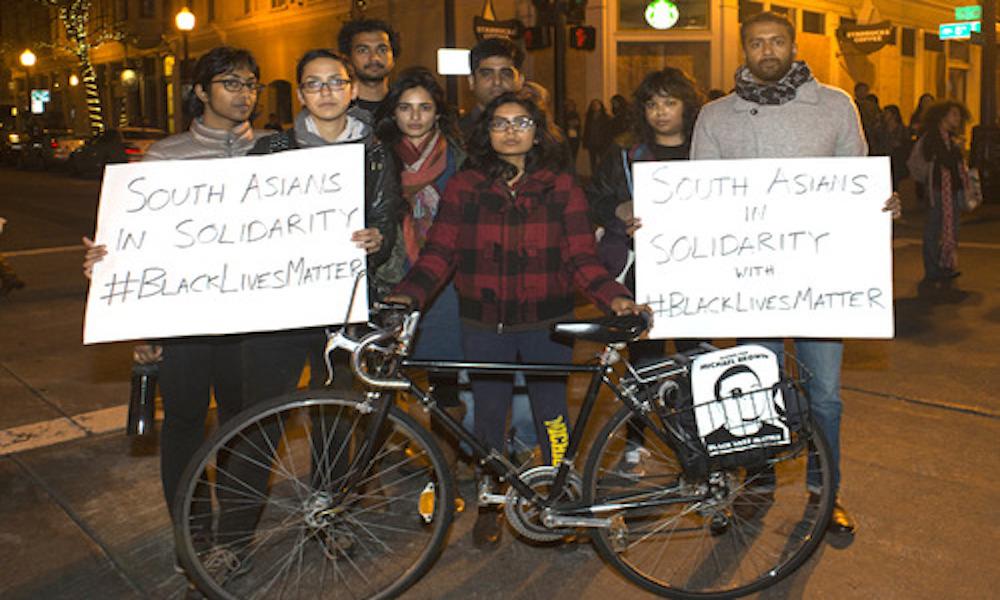Saheed Vassell, an unarmed black man, was shot by the police and killed in my neighborhood, the afternoon of my birthday.
I was turning 23 years old and had recently moved into a new neighborhood in Brooklyn. On that day, I headed home anxious after a long day in corporate America. I was looking forward to spending a quiet evening with a friend and some cake.
After I got off the long subway ride home, I saw that my neighborhood in Crown Heights was swarming with cops. It wasn’t that strange to me at that moment as I live in an area that is predominantly made up of people of color and therefore, generally spot cops. However, the sheer number of cops this time around made me realize that something really bad had happened. I didn’t know what until I found out that night on Facebook that a 34-year-old black man had been shot 10 times and killed just a few streets away from my home.
I was upset, shocked, appalled and ashamed. Amidst clicking through my birthday wishes on Facebook, I could feel the tears streaming down my cheeks. It was hard to celebrate another year of my life that night, knowing that another innocent black life had been lost due to state violence.
Vassell was 34 years old. He had bipolar disorder. He was shot because the police thought the metal pipe he had in his hand was a handgun.
Vassell wasn’t the first black man to die on my birthday. In fact, Martin Luther King, Jr. was also shot and assassinated on the very same day 50 years ago.
It’s hard for me not to think about social justice on a day-to-day basis when incidents like this occur, especially as they happen on my birthday, every year. It has made me more introspective.
As my birthday nears again this year, I still think about Saheed Vassell, that day, and how many more lives lost since.
What could I have done for someone who lives a few streets away from me? What could I do to help my black and brown neighbors?
Nikkita Oliver wrote earlier this year in The Establishment that “If we want to progress forward today, we must start from a place of shared resistance.”
Non-black minorities, such as myself, must stand in solidarity with the Black Lives Matter movement. Our support of our black siblings and their black lives is vital to our collective survival.
I can not pretend or even fathom to understand the struggles that my black friends or neighbors go through every single day. But what I can do is choose to listen, support and stand by them.
As a brown activist, I will not just stand by when there are injustices against oppressed folks of color just because I am a different minority. I worry about the anti-blackness within communities of color. This white supremacist tool of division that continues to enslave our communities must be battled out of us. We must start to acknowledge our internalized colonialism and white supremacy in order for us to successfully organize and move forward. We must stand in solidarity with one another.
As I learned this year as an activist and storyteller, even in Brooklyn, one of the most progressive neighborhoods in America, it is challenging to be a woman of color.
New York City is a hard city to even try to get to know your own roommates. I have often been told by natives of the city, people I meet at events, or even my cab driver the other day that I am too friendly to be a New Yorker.
I chuckle every time this remark is made. I grew up in an Indian household where everyone was nosy and knew everything about one another. My family members are practically my best friends where I can tell them virtually anything from sexuality to social activism. Brown culture encourages community building and collectivism, and I continue to carry these values with me in Brooklyn.
As I think about Saheed and many of my neighbors, I think about the importance and value in community building—whether that’s attending the tenant meetings, rallies, or just taking 10 minutes to talk to that neighbor in your stairwell. A little support can go a long way in someone’s day.





